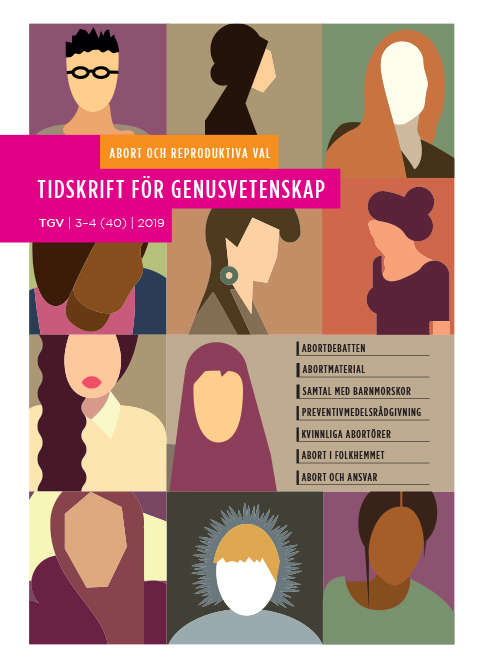Från medicinskt avfall till rättighetsinnehavare
Framväxten av värdekonflikter kring aborterade foster i Sverige
DOI:
https://doi.org/10.55870/tgv.v40i3-4.2629Nyckelord:
reproduktiv styrning, reproduktiv bioekonomi, subjektspositioner, aborterade foster, medicinskt avfall, 1900-talet, SverigeAbstract
This article examines value conflicts over fetuses from legal abortions in a historical perspective. It aims to investigate various ways of handling, defining, and regulating aborted fetuses in Sweden during mainly the 20th century. Drawing on the concepts of “reproductive governance” and “reproductive bioeconomy” we highlight how subject positions for women as well as values and meanings attributed to aborted fetuses not only shifted over time but also within and between different areas of society. Particular attention is paid to the ways in which central actors have raised issues about values, interests, and rights in discussions and practices regarding abortion materials in medical research, abortion care, legislation, state regulations, and political debates. We trace the conceptualization of aborted fetuses as medical waste to the work of embryologists around 1900. Then we go on to discuss how this “waste regime” was challenged and gradually undermined as the fetus gained a greater visibility in the public domain and in some contexts was attributed with individual rights. By placing the handling of aborted fetuses in focus this study adds to previous research on abortion history. It demonstrates that the rights of women and fetuses emerged in tandem and were related to each other in Sweden over the 20th century.
Nedladdningar
Downloads
Publicerad
Referera så här
Nummer
Sektion
Licens
Författaren/författarna behåller copyright till verket.





